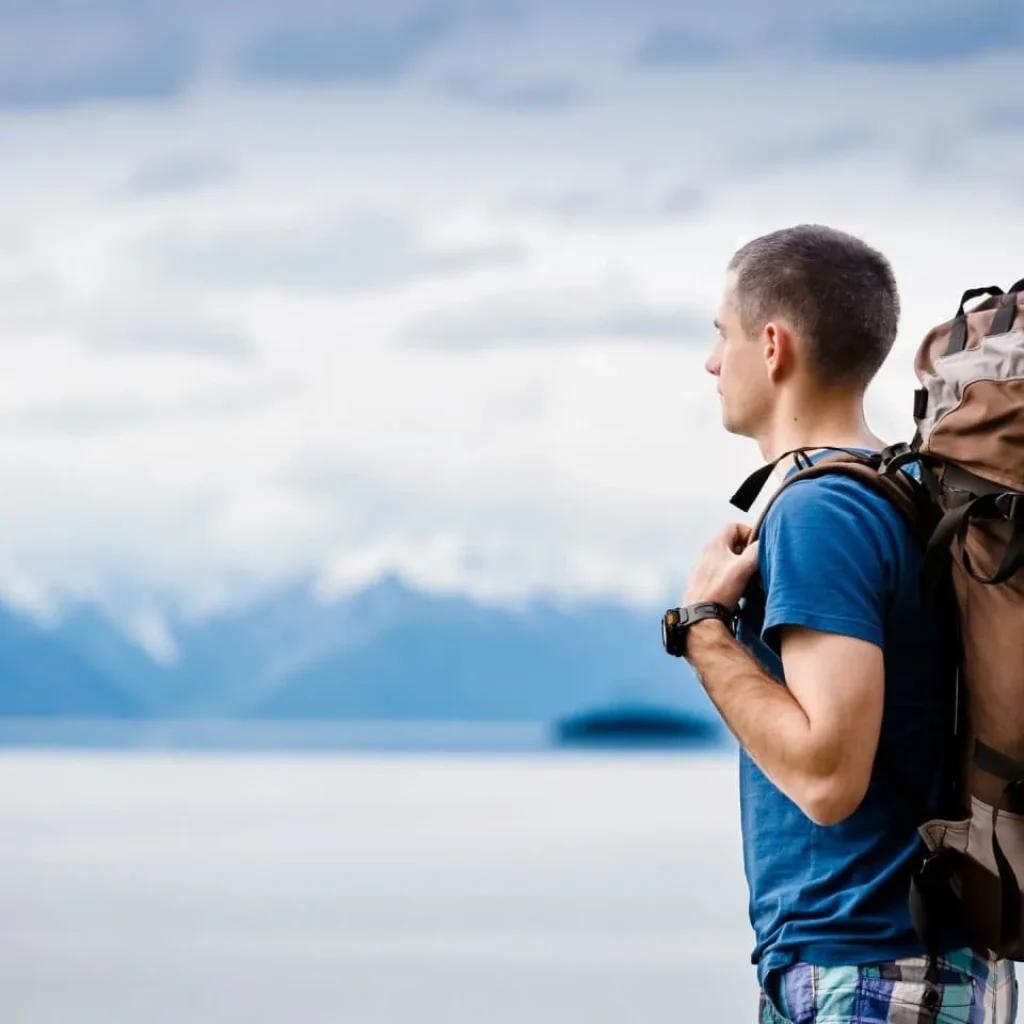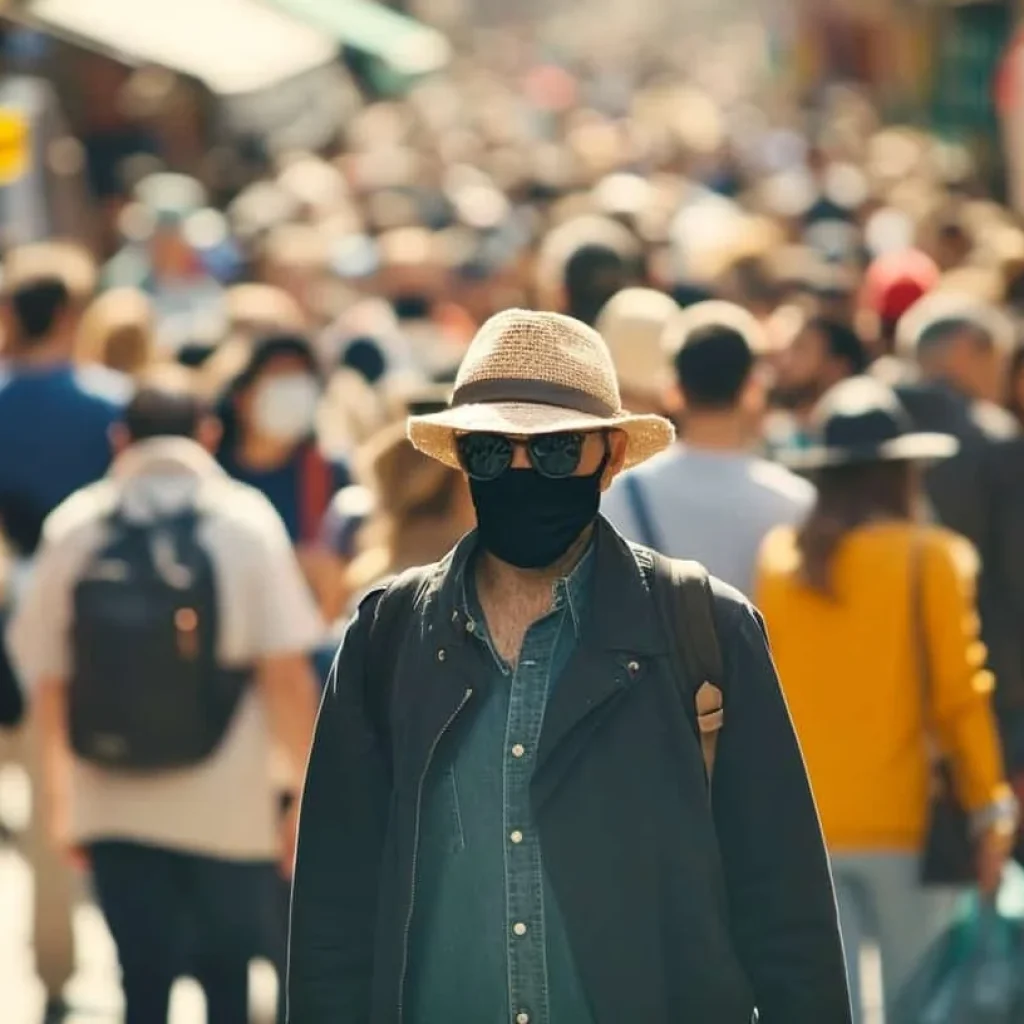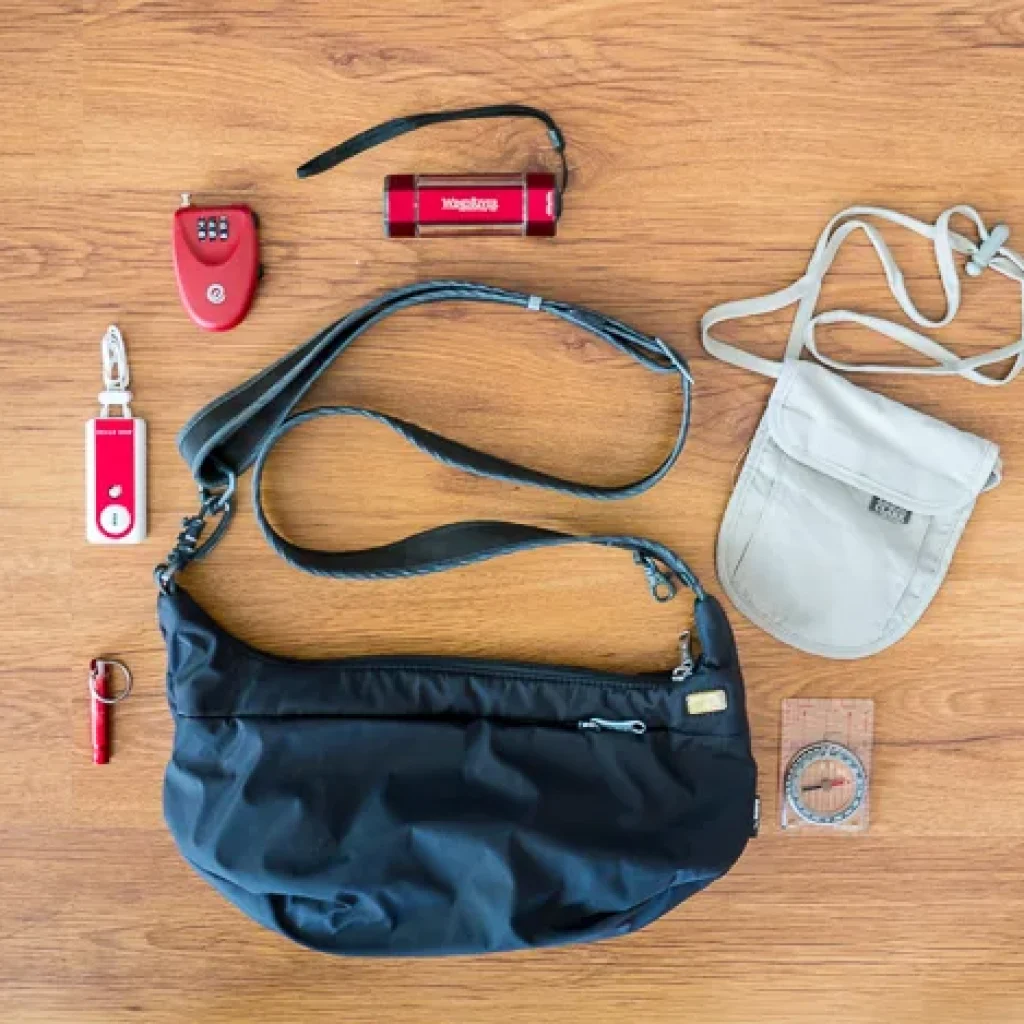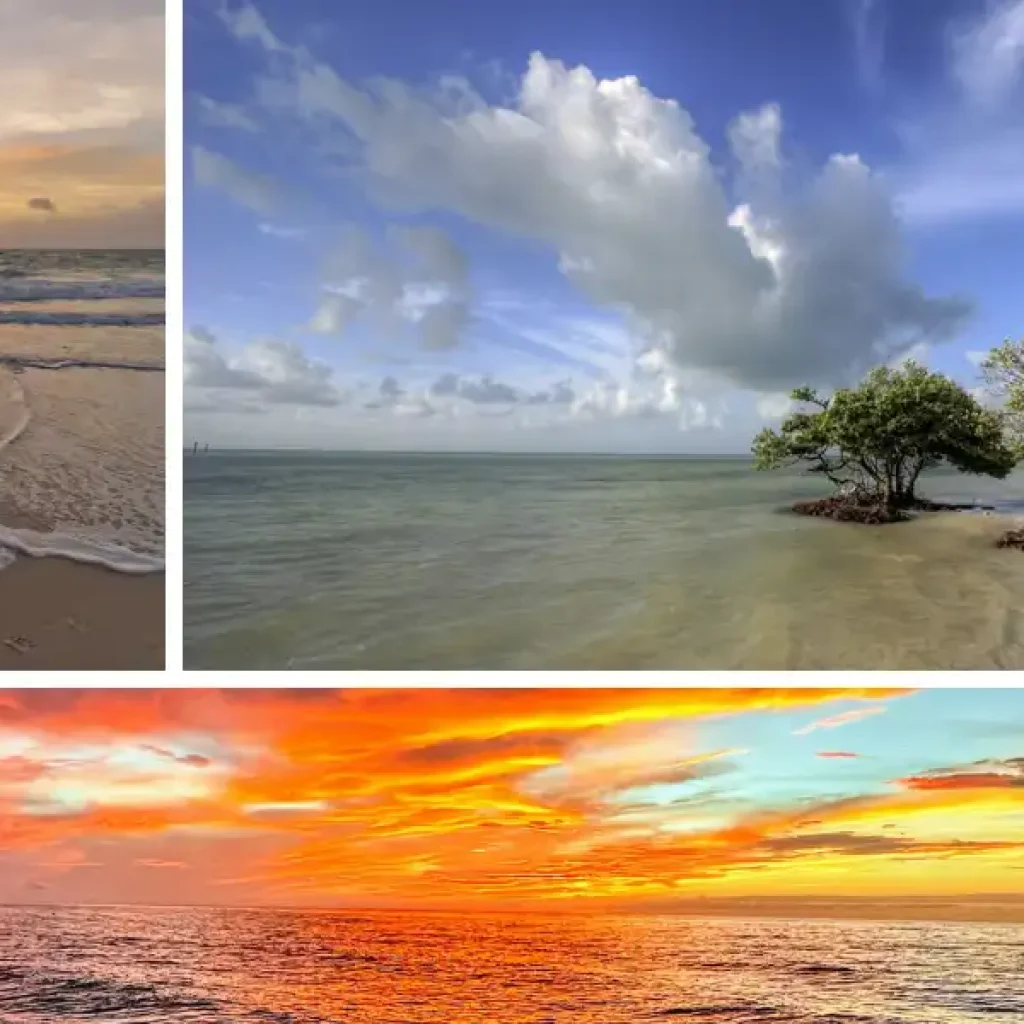How to Travel Anonymously: A Step-by-Step Guide

Are you someone who loves to travel but wants to keep a low profile? Do you wish to explore new places without leaving a trail behind? If yes, then anonymous travel is the way to go. Traveling anonymously allows you to experience the thrill of exploring new destinations while maintaining your privacy and anonymity.
In today’s digital age, where our every move and personal information are constantly being tracked and monitored, traveling anonymously provides a sense of freedom and peace of mind.
Anonymous travel involves taking certain precautions and using specific strategies to ensure that your personal information and identity are protected while on the road. From understanding the concept of anonymous travel to navigating the legal considerations and maintaining anonymity during your journey, this step-by-step guide will provide you with all the information you need to travel anonymously. So, pack your bags and get ready to embark on an adventure like no other.
Understanding the Intricacies of Anonymous Travel

Traveling anonymously may seem like a concept straight out of a spy movie, but it is becoming increasingly popular among travelers who value their privacy and want to explore new places without attracting unwanted attention. By adopting certain strategies and taking necessary precautions, you can travel incognito and enjoy a sense of freedom and anonymity.
The Concept and Importance of Anonymous Travel
Anonymous travel is a concept that allows you to explore new destinations without revealing your true identity. It is about maintaining a low profile and avoiding unnecessary attention while enjoying the freedom to experience different cultures and places.
Traveling anonymously provides peace of mind by protecting your personal information and identity from theft and potential scams. It allows you to disconnect from your usual online presence and enjoy the adventure of travel under a different identity. Whether you are looking for privacy, a sense of freedom, or simply a new experience, anonymous travel can be a good idea.
Recognizing the Potential Challenges in Anonymous Travel
While anonymous travel offers many benefits, it is important to recognize the potential challenges that may arise. Traveling anonymously may attract unwanted attention from authorities or locals who may become suspicious of your intentions. It is also important to be aware of sensitive information that you may need to share during your travels and take precautions to protect it.
Additionally, navigating unfamiliar destinations and customs may pose challenges for anonymous travelers. Being prepared and aware of the potential risks and drawbacks can help you overcome these challenges and ensure a smooth and enjoyable journey.
Legal Considerations for Anonymous Travel

When it comes to traveling anonymously, it is important to understand the legal considerations and requirements of your destination. Different countries have different laws regarding anonymity and privacy, and it is essential to comply with these laws to avoid any legal complications. Familiarize yourself with the local laws, particularly those related to travel documents and identification requirements, to ensure a hassle-free experience.
Understanding Passport and Identification Requirements
Passport and identification requirements are crucial considerations when traveling anonymously. It is important to ensure that your passport is up-to-date and valid for travel to avoid any issues at border control. However, if you wish to maintain your anonymity, using your real name on your passport may contradict your goal. In such cases, using an alias or alternative identification method can help protect your anonymity. It is also important to carry only the necessary identification documents and securely pack them to prevent theft or loss. Familiarize yourself with the legal requirements for identification at your destination to ensure a smooth and anonymous journey.
Tips for Navigating Border Control Anonymously
Navigating border control while maintaining your anonymity requires careful planning and preparation. Here are some tips to help you navigate border control anonymously:
- Research the specific entry requirements and procedures of your destination to avoid any surprises or delays.
- Use a pseudonym or fake name when submitting travel documents online or interacting with authorities.
- Be prepared for additional scrutiny when traveling anonymously and answer questions confidently and truthfully without revealing unnecessary personal information.
- Utilize a virtual private network (VPN) to encrypt your internet connection and protect your online identity.
- Minimize your digital footprint by using anonymous browsing tools like the Tor browser.
- Familiarize yourself with the border control process to navigate it more smoothly and confidently.
By following these tips, you can navigate border control anonymously and ensure a hassle-free travel experience.
The Beginner’s Guide: Preparing for Your Anonymous Journey

Preparing for an anonymous journey requires careful planning and consideration. It is essential to take certain steps to ensure that your privacy and anonymity are maintained throughout your travels. This section will guide you through the process of preparing for your anonymous journey, from identifying what you need to get started to selecting the right destination and booking accommodations and transportation anonymously.
Identifying What You Need to Get Started
Before embarking on your anonymous journey, it is important to identify the tools and resources you will need to maintain your anonymity. Here are some key items to consider:
- Virtual Private Network (VPN): A VPN provides a secure and encrypted internet connection, allowing you to browse the web anonymously and protect your online identity.
- The Onion Router (Tor): Tor is a free and open-source software that enables anonymous communication and browsing by directing internet traffic through a worldwide volunteer network of relays.
- Anonymous Payment Methods: Consider using prepaid debit cards or cryptocurrencies for financial transactions to avoid leaving a digital trail.
- Secure Wallet: Use a secure wallet to store your identification documents and other important items securely.
- Passport: Ensure that your passport is up-to-date and valid for travel.
- Disposable Phone: Consider using a disposable phone or a separate SIM card to protect your identity and maintain anonymity while communicating.
By having these essential tools and resources, you can better prepare for your anonymous journey and ensure a smooth and secure travel experience.
Step 1: Selecting the Right Destination for Anonymous Travel
Choosing the right destination is crucial when traveling anonymously. Here are some factors to consider when selecting a destination:
- Privacy Laws: Research the privacy laws and regulations of potential destinations to ensure they align with your anonymity goals.
- Surveillance and Internet Access: Avoid locations with high surveillance or restricted internet access, as these can hinder your ability to maintain anonymity.
- Personal Freedom and Privacy: Look for destinations that value personal freedom and privacy, where you can explore without feeling tied to your usual identity.
- Recommendations and Resources: Consult online forums and resources for recommendations on anonymous-friendly destinations. These platforms can provide valuable insights and suggestions from experienced travelers.
By carefully selecting your destination, you can enhance your anonymity during your travels and enjoy a more private and secure experience.
Step 2: Booking Accommodations and Transportation Anonymously
When booking accommodations and transportation for your anonymous journey, it is important to prioritize online privacy and security. Here are some tips for booking anonymously:
- Use Anonymous Platforms: Consider using anonymous booking platforms or travel agents that prioritize privacy and do not require personal information.
- Alternative Lodging Options: Explore alternative lodging options like vacation rentals or homestays, which often provide more privacy and anonymity compared to traditional hotels.
- Cash Transactions: Use cash or prepaid debit cards for transactions to avoid leaving a digital trail.
- Avoid Personal Information: Minimize the amount of personal information you provide when booking flights or hotels. Only provide the necessary details to complete the booking process.
- Research Local Transportation Options: Look for local transportation options that prioritize anonymity, such as public transportation or ride-sharing services.
By following these tips, you can book accommodations and transportation anonymously and protect your privacy throughout your journey.
Step 3: Packing Essential Items for Anonymous Travel
When packing for your anonymous journey, it is important to prioritize discretion and avoid drawing unnecessary attention. Here are some essential items to pack:
- Luggage: Use plain and discreet luggage without any personal information or identifiable tags.
- Essential Items: Pack essential items for your journey, such as clothing, toiletries, and any specific items you may need for your destination.
- Tech and Gadgets: Consider bringing a burner phone or a separate communication device. Ensure that your devices are secure and do not contain any personal information or sensitive data.
- Disguises: If desired, pack disguises or accessories that can help you blend in and maintain a low profile.
- Cash and Prepaid Debit Cards: Bring cash or prepaid debit cards for financial transactions to avoid leaving a digital trail.
By packing these essential items, you can travel anonymously with peace of mind and avoid drawing unnecessary attention.
Maintaining Anonymity During Your Journey
Maintaining anonymity while on your trip is crucial for protecting your privacy and security. This section will guide you through the process of maintaining anonymity during your journey, from communicating safely and securely to ensuring financial secrecy and utilizing the right technology.
Communicating Safely and Securely
When traveling anonymously, it is important to prioritize secure and private communication. Here are some tips for communicating safely and securely:
- Secure Email: Use encrypted email services to protect sensitive information and ensure that your conversations remain private.
- Strong Passwords: Create strong and unique passwords for all your accounts to prevent unauthorized access.
- Encrypted Messaging Apps: Utilize encrypted messaging apps, such as Signal or WhatsApp, for confidential conversations.
- Secure Virtual Phone Numbers: Consider using secure virtual phone numbers or disposable SIM cards to protect your identity and maintain anonymity.
- Be cautious when using public Wi-Fi networks, as they can be vulnerable to hacking and potential data breaches.
By following these tips, you can communicate safely and securely while maintaining your anonymity during your journey.
Financial Transactions: Ensuring Financial Secrecy
Ensuring financial secrecy is essential when traveling anonymously. Here are some tips for maintaining financial privacy:
- Use Cash: Whenever possible, use cash for transactions to avoid leaving a paper trail that can be traced back to you.
- Separate Bank Account: Consider opening a separate bank account specifically for anonymous travel expenses to further protect your anonymity.
- Monitor Financial Statements: Regularly monitor your financial statements for any suspicious activity or unauthorized transactions.
- Exercise Caution with ATMs: When using ATMs in unfamiliar locations, be cautious and take necessary precautions to prevent identity theft.
- Familiarize Yourself with Local Laws: Research the local laws regarding currency restrictions and reporting requirements to ensure compliance and avoid any legal complications.
By following these tips, you can maintain financial secrecy while traveling anonymously and protect your anonymity during your journey.
The Role of Technology: Using VPNs and Other Tools
Technology plays a crucial role in maintaining anonymity during your travels. Here are some tools and technologies to consider:
- Virtual Private Network (VPN): Use a reliable VPN provider to encrypt your internet connection and protect your online identity.
- Secure Internet Connection: Ensure that you are connected to a secure internet connection, especially when submitting travel documents or accessing sensitive information online.
- Anonymous Browsing: Utilize anonymous browsing tools like the Tor browser to minimize your digital footprint and avoid tracking.
- Privacy Apps and Settings: Install privacy-focused apps and adjust privacy settings on your devices to enhance your anonymity.
- Secure Messaging Apps: Use secure messaging apps with end-to-end encryption to protect your conversations and prevent unauthorized access.
By leveraging these technologies and tools, you can enhance your anonymity and protect your privacy while traveling anonymously.
Essential Safety Measures for Anonymous Travelers

Ensuring personal safety and security is crucial when traveling anonymously. This section will provide essential safety measures and tips for anonymous travelers to navigate potential risks and challenges.
Personal Safety Tips and Techniques
When traveling anonymously, personal safety should be a top priority. Here are some personal safety tips and techniques to consider:
- Maintain a Low Profile: Avoid drawing unnecessary attention to yourself by dressing modestly and blending in with the local culture.
- Be Aware of Your Surroundings: Stay vigilant and aware of your surroundings to avoid potential risks or threats.
- Protect Your Belongings: Keep your belongings secure and avoid displaying valuable items that may attract unwanted attention.
- Research Local Laws and Customs: Familiarize yourself with local laws and customs to avoid unintentionally breaking any rules or customs that may lead to complications.
- Stay Informed: Stay updated on current events and potential risks in the areas you plan to visit to make informed decisions and take necessary precautions.
By following these personal safety tips and techniques, you can navigate your anonymous journey with confidence and peace of mind.
Strategies for Dealing with Unexpected Situations
While traveling anonymously, unexpected situations may arise. Here are some strategies for dealing with unexpected situations:
- Research Local Laws: Familiarize yourself with local laws and regulations to prevent any misunderstandings or legal complications.
- Complications and Necessary Precautions: Be prepared for potential complications and take necessary precautions to navigate unexpected situations smoothly.
- Seek Assistance from Authorities: In case of emergencies or unexpected situations, don’t hesitate to seek assistance from local authorities while protecting your anonymity as much as possible.
- Maintain a Low Profile: In challenging situations, it is crucial to maintain a low profile and avoid drawing unnecessary attention to yourself.
- Trust Your Instincts: Trust your instincts and use common sense when navigating unexpected situations.
By adopting these strategies, you can ensure a safer and more secure anonymous journey.
The Art of Staying Disconnected yet Connected
Staying disconnected yet connected is a balancing act that allows you to enjoy the benefits of technology while maintaining your anonymity. This section will provide tips and strategies for staying connected through social media and online activity while protecting your privacy and maintaining your anonymity.
Using Social Media Wisely During Anonymous Travel
Using social media wisely is essential for maintaining your anonymity while traveling. Here are some tips for using social media during anonymous travel:
- Limit Information Sharing: Avoid sharing too much information about your travels on social media platforms.
- Use Pseudonyms or Separate Accounts: Consider using pseudonyms or separate accounts for your anonymous travel adventures to avoid linking your real identity to your online presence.
- Avoid Public Tagging or Checking-In: Refrain from publicly tagging or checking in at locations to prevent revealing your whereabouts or activities.
- Be Mindful of Your Digital Footprint: Remember that once information is shared online, it can be difficult to control or remove. Be mindful of your digital footprint and the potential consequences.
- Adjust Privacy Settings: Adjust your privacy settings on social media platforms to control who can see your posts, photos, and personal information.
By using social media wisely, you can protect your privacy and maintain your anonymity during your travels.
Protecting Your Personal Information from Potential Threats
Protecting your personal information is crucial in maintaining your anonymity. Here are some tips for safeguarding your personal information from potential threats:
- Be Cautious of Public Wi-Fi Networks: Avoid using public Wi-Fi networks that may be unsecured and prone to hacking or data breaches.
- Use Strong Passwords and Two-Factor Authentication: Create strong and unique passwords for your online accounts and enable two-factor authentication for an extra layer of security.
- Beware of Phishing Attacks: Be cautious of phishing emails or messages that may attempt to trick you into revealing your personal information.
- Regularly Update Software and Security Measures: Keep your devices and security software up to date to protect against the latest threats and vulnerabilities.
- Backup Your Data: Regularly backup your data to prevent loss or unauthorized access.
By following these tips, you can protect your personal information and maintain your anonymity while traveling anonymously.
Post-travel Protocol: Safeguarding Your Anonymity
Safeguarding your anonymity even after returning home is crucial to maintain your privacy. This section will provide post-travel protocols for protecting your anonymity and minimizing your digital footprint.
Disposing of Any Traces After Returning Home
After returning from your anonymous journey, it is important to dispose of any traces that may reveal your activities or compromise your anonymity. Here are some steps to follow:
- Clear Your Browsing History and Cache: Clear your browsing history, cookies, and cache from your devices to prevent anyone from tracking your online activities.
- Securely Delete Travel-related Files: Securely delete any files or documents related to your travels, including boarding passes, hotel receipts, or photos that could identify you.
- Shred or Destroy Physical Documents: Shred or destroy physical documents like boarding passes and hotel receipts that may contain personal information.
- Remove Travel-related Apps or Data: Remove any travel-related apps or data from your devices to remove any links between your current location and the places you’ve been.
- Protect Your Personal Information: Be vigilant about protecting your identity and personal information even after your trip. Use different usernames and passwords for websites and avoid sharing personal information like addresses or phone numbers.
By following these protocols, you can minimize your digital footprint and safeguard your anonymity after returning home.
Reviewing and Updating Your Security Measures
Regularly reviewing and updating your security measures is essential for maintaining your anonymity and protecting your privacy. Here are some steps to consider:
- Review Passwords and Security Settings: Regularly review and update your passwords, as well as adjust security settings on your devices and accounts to ensure maximum protection.
- Update Software and Security Tools: Keep your software and security tools up to date to stay protected against the latest threats and vulnerabilities.
- Monitor Financial Statements: Regularly monitor your financial statements for any unauthorized activity or suspicious transactions.
- Conduct a Privacy Audit: Regularly conduct a privacy audit to identify any potential vulnerabilities or areas where your personal information may be at risk.
- Stay Informed: Stay updated on the latest privacy and security practices to ensure you are taking the necessary precautions to protect your anonymity.
By regularly reviewing and updating your security measures, you can stay one step ahead of potential threats and maintain your anonymity.
Conclusion
In conclusion, traveling anonymously can offer a sense of freedom and privacy, allowing you to explore new destinations without the concerns of being easily identifiable. However, it’s important to understand the intricacies and potential challenges that come with anonymous travel. Make sure to familiarize yourself with the legal considerations, such as passport requirements and border control navigation.
Prepare for your journey by selecting the right destination, booking accommodations and transportation discreetly, and packing essential items. During your trip, maintain anonymity by communicating safely, ensuring financial secrecy, and utilizing technology tools like VPNs.
Prioritize personal safety and be prepared for unexpected situations. Stay connected yet disconnected on social media and protect your personal information from potential threats. After returning home, dispose of any traces and review/update your security measures. Remember, anonymous travel is not without its risks, so proceed with caution. If you have any more questions or tips to share, we’d love to hear from you in the comments below.
Frequently Asked Questions
Is it legal to travel anonymously?
How to travel anonymously, Traveling anonymously may not be illegal in itself, but it is important to research and comply with the laws and regulations of your destination. Be aware of potential legal considerations, such as local laws regarding travel documents and identification requirements.
How can I ensure my safety while traveling anonymously?
Ensuring personal safety while traveling anonymously involves being cautious, maintaining a low profile, and being aware of your surroundings. It is also important to familiarize yourself with local laws and customs to avoid any potential risks or complications.
What are some tips for avoiding identification while traveling?
How to travel anonymously, To avoid identification while traveling, consider using a pseudonym or fake name, disguises, and alternative identification methods. Avoid sharing unnecessary personal information and be cautious when interacting with authorities or providing identification.
How can I protect my privacy when using public transportation or staying in hotels?
How to travel anonymously, When using public transportation or staying in hotels, be cautious about sharing personal information and use discretion when discussing travel plans or accommodations. Consider using cash transactions and avoid publicly displaying sensitive information.
Are there any legal considerations I should be aware of when traveling anonymously?
How to travel anonymously, When traveling anonymously, it is important to be aware of the legal considerations and requirements of your destination. Research and comply with the laws and regulations regarding travel documents, identification requirements, and privacy laws to avoid any legal complications.
What are some potential risks or drawbacks to traveling anonymously?
How to travel anonymously, Some potential risks or drawbacks to traveling anonymously include attracting unwanted attention, facing difficulties in emergencies, limited access to certain services, and challenges in resolving issues without revealing your identity. It is important to weigh the benefits and risks before embarking on an anonymous journey.













